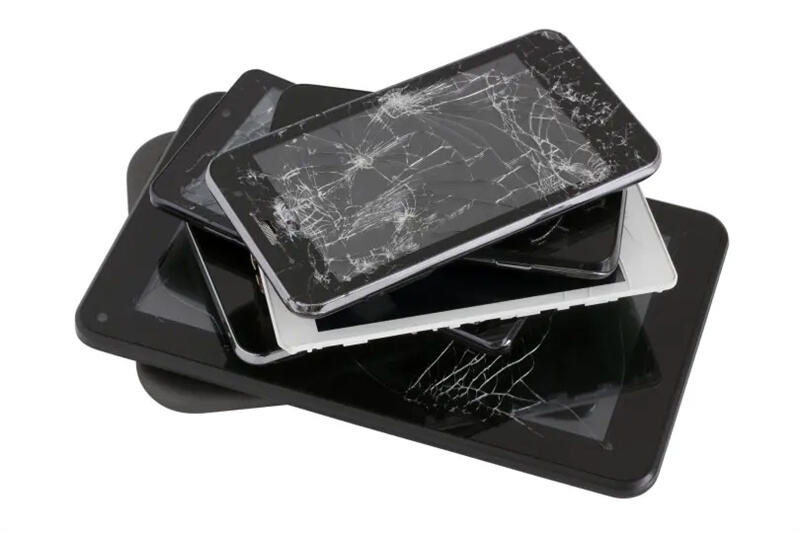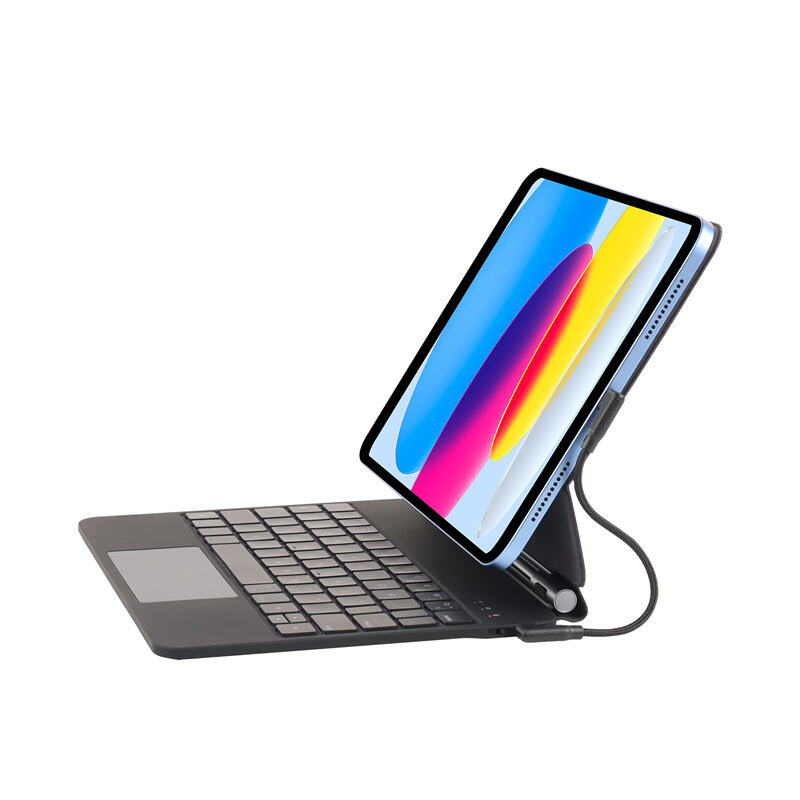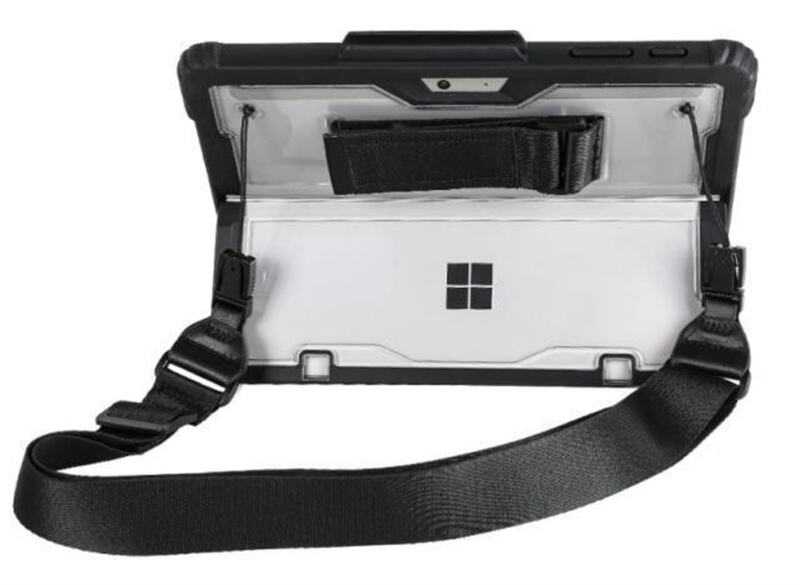Návod pro výběr klávesnice pro studenty: Type-C kabelová & odolná proti nárazům pro studium
proč studenti potřebují samostatnou klávesnici

Studenti potřebují samostatnou klávesnici především proto, že efektivní dovednosti psaní na klávesnici přímo ovlivňují jejich akademické úspěchy a produktivitu. Níže jsou uvedeny hlavní důvody:
1.1Zvýšená efektivita a lepší správa času: Odborné psaní umožňuje studentům rychleji dokončit úkoly, poznámky a zkoušky, čímž získají více času na pochopení učiva a zdokonalení své práce, místo aby se potýkali s psaním.
1.2Snížené kognitivní zatížení: Pokud studenti ovládají psaní na klávesnici, vynakládají méně duševní energie na hledání kláves a opravu překlepů. Můžou tak lépe udržet myšlenkový tok a jasněji a rozsáhleji vyjádřit své nápady.
1.3Důležitost pro digitální vzdělávání a připravenost na vysokou školu: Vzdělávání se stále více opírá o online platformy, kde samostatná klávesnice usnadňuje pohyb v digitálních testech, výzkumu i spolupráci a připravuje studenty na vysokou školu a budoucí kariéru vyžadující odborné psaní a práci s počítačem.
dents for college and future careers requiring proficient typing and computer use.
2Klíčové funkce ideální klávesnice pro studenty

2.1Odolný proti nárazům:
Klávesnice vybavená materiály pohlcujícími nárazy nebo zpevněným pouzdrem chrání před náhodným upuštěním a běžnými nárazy, ke kterým často dochází při používání studenty. Tato vlastnost je obzvlášť užitečná pro studenty, kteří přenášejí klávesnice v batohu mezi jednotlivými hodinami nebo místy pro studium.
2.2Kabelové připojení přes Type-C (není třeba nabíjet):
Kabelové připojení USB Type-C zaručuje spolehlivý výkon s nízkou latencí bez nutnosti baterií nebo přerušení kvůli nabíjení. Toto propojení typu plug-and-play pomáhá studentům vyhnout se zpoždění při bezdrátovém vstupu nebo problémům s připojením a zároveň poskytuje nepřetržité napájení pro dlouhé studijní sezení.
2.3Další důležité aspekty ideální klávesnice pro studenty mohou zahrnovat:
Odolnost a snadná údržba: Možnost odolat častému čištění nebo rozlitém kapalinám, včetně voděodolnosti, jaká je u profesionálních klávesnic, což zajišťuje hygienu a trvanlivost.
Komfort a psaní: Dostatečný zdvih kláves s hmatatelnou odezvou pomáhá snižovat únavu při delším psaní, podporuje ergonomickou polohu a zlepšuje přesnost. Pohodlné psaní je důležité pro studenty, kteří tráví hodiny psaním prací, poznámkováním nebo prací na projektech.
3Jak si vybrat správnou klávesnici pro váš studijní styl
Pro výběr vhodné klávesnice pro váš studijní styl je důležité vyhodnotit vaše konkrétní potřeby, zvyky při používání a pracovní prostředí. Níže naleznete odborně podložená doporučení přizpůsobená pro studenty:
3.1Identifikujte hlavní způsob použití
Zamyslete se nad tím, jak budete klávesnici především používat. Pokud budete většinou psát práce, poznámky a provádět online výzkum, je klíčová klávesnice s pohodlným psaním a spolehlivým připojením.
3.2Typ připojení: Pevné vs. bezdrátové
Pevné (doporučeno USB Type-C): Nabízí stabilní výkon s nízkou latencí bez nutnosti nabíjení, což je důležité pro delší studijní sezení bez přerušení.

Bezdrátové: Zajišťuje čistší pracovní prostředí a větší svobodu umístění, ale může vyžadovat dobíjení. Pokud dáváte přednost pracovnímu stolu bez kabelů a často přemisťujete klávesnici, bezdrátová verze může být vhodnější. Ujistěte se však, že si vyberete model s dlouhou výdrží baterie, abyste předešli přerušení během důležitých učebních sezení.
3.3Odolnost a kvalita provedení
Vyhledejte odolnost proti nárazům nebo odolnost proti rozlití – důležité pro studenty, kteří přepravují klávesnici nebo dlouhé hodiny studují v různých prostředích. Klávesnice, která vydrží pád do batohu nebo rozlité nápoje, vydrží déle a ušetří vám peníze na nákup nové. Pro vodivé klávesnice přinášejí delší životnost potažené kabely, protože jsou méně náchylné k poškození při ohybu nebo krutu.

3.4Další funkce k zvážení
Podsvícení (RGB nebo jednobarevné): Užitečné pro noční učení nebo prostředí s nízkým osvětlením. Usnadní čtení kláves při učení v šerem osvětlené místnosti.
Ergonomie: Zvažte použití zápěstních podložek nebo klávesnic s nastavitelným úhlem sklonu, abyste snížili zátěž. Strávení hodin psaním může způsobit potíže ve zápěstí a rukou, proto ergonomická klávesnice může pomoci předcházet nepohodlí a zraněním.
Kompatibilita: Ujistěte se, že klávesnice bezproblémově funguje s vašimi zařízeními (PC, Macy nebo tablety). Zkontrolujte technické parametry, abyste zajistili kompatibilitu s vaším operačním systémem a veškerým softwarem, který pravidelně používáte.
Rozpočet: Klávesnice nemusí být drahá; kvalitní modely existují i v cenově dostupných variantách, které dobře kombinují kvalitu a funkce. Stanovte si rozpočet a vyhledejte klávesnice v dané cenové kategorii, které nabízejí funkce, jež jsou pro vás nejdůležitější.
Zvážením těchto faktorů si můžete vybrat klávesnici, která perfektně odpovídá vašemu studijnímu stylu a pomůže vám během akademické dráhy zůstat produktivním a pohodlným.



